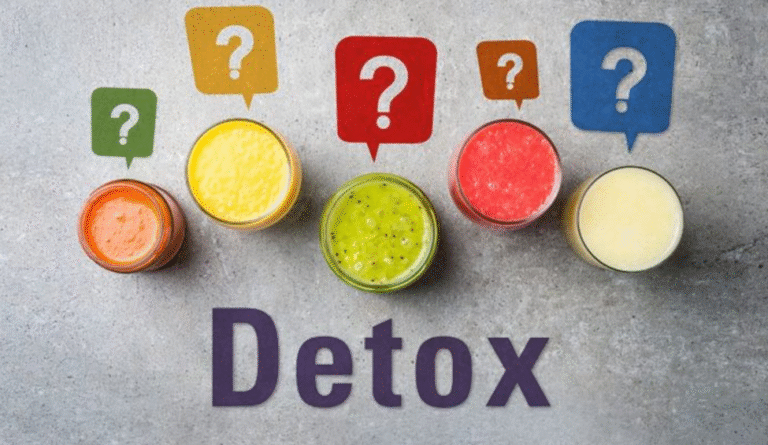Weight Loss Diets- Clearing Up Confusion for Better Results
Losing weight is a goal for many people. But weight loss diets often come with many misconceptions. These myths can mislead and make weight loss harder. Understanding the truth helps in following a successful weight management diet.

Misconception 1: Skipping Meals Helps in Weight Loss
Many believe skipping meals leads to faster weight loss. This is false. Skipping meals slows metabolism and causes overeating later. A balanced weight management diet includes regular meals. Eating small portions frequently is better than skipping meals.
Misconception 2: All Calories Are Equal
Some think all calories have the same effect on the body. But calories from protein, fat, and carbs work differently. Protein keeps you full longer, while sugar leads to hunger spikes. A proper weight management diet focuses on healthy calorie sources.
Misconception 3: Carbs Are Always Bad
Many diets promote cutting out all carbs. But not all carbs are bad. Whole grains, fruits, and vegetables contain healthy carbs. Processed carbs like white bread and sugar are unhealthy. A good weight management diet includes the right type of carbs.
Misconception 4: Fat Makes You Fat
Some believe eating fat leads to weight gain. But healthy fats help in weight loss. Avocados, nuts, and olive oil support metabolism. Trans fats and processed fats are the real problem. A balanced weight management diet includes good fats.
Misconception 5: Eating Late at Night Causes Weight Gain
Many thinks eating at night leads to weight gain. But the total calorie intake matters more than timing. If you eat within your daily limit, you won’t gain weight. However, unhealthy late-night snacks can affect a weight loss diet.
Misconception 6: Dieting Means Starving
People think a diet means eating very little food. But starving slows metabolism and causes muscle loss. A sustainable weight management diet provides enough nutrients. Eating nutritious meals in moderation leads to weight loss.
Misconception 7: Supplements Alone Help in Weight Loss
Many rely on supplements for weight loss. But supplements alone don’t work. A good weight loss diet focuses on natural foods. Exercise and lifestyle changes are essential with weight Loss Diets.
Misconception 8: You Must Cut Out All Snacks
Snacking is seen as bad for weight loss. But healthy snacks can help control hunger. Nuts, fruits, and yogurt are good choices. A weight management diet includes smart snacking.
Misconception 9: Detox Diets Are Necessary for Weight Loss
Detox diets claim to cleanse the body. But the body naturally detoxes itself. The liver and kidneys remove toxins effectively. A balanced diet and hydration are better than extreme weight Loss Diets.
Misconception 10: Rapid Weight Loss Is Sustainable
Many believe losing weight fast is good. But rapid weight loss often leads to regain. A slow and steady weight management diet works best. Long-term changes lead to lasting results.
Misconception 11: Only Exercise Matters for Weight Loss
Exercise is important but not enough alone. Diet plays a bigger role in weight loss. A weight loss diet combined with exercise is most effective. Choosing the right foods boosts weight loss efforts.
Misconception 12: Drinking Water Burns Fat
Water is essential for health. But it doesn’t burn fat directly. Staying hydrated helps metabolism and digestion. A good weight management diet includes enough water.
Misconception 13: You Should Avoid All Sugar
Sugar is often blamed for weight gain. But natural sugars in fruits are fine. The real issue is added sugars in processed foods. A healthy weight loss diet limits added sugar, not natural sugar.
Misconception 14: Eating More Protein Always Leads to Weight Loss
Protein is important but not a magic solution. Excess protein still adds calories. A weight management diet includes balanced protein intake. Combining protein with exercise helps in weight loss.
Misconception 15: Low-Fat Foods Are the Best Choice
Low-fat labels often mislead people. Many low-fat foods contain extra sugar. A weight management diet focuses on whole foods. Healthy fats are better than processed low-fat products.
Misconception 16: Weight Loss Diets Work the Same for Everyone
Different diets work for different people. Genetics, metabolism, and lifestyle matter. A personalized weight loss diet works best. One-size-fits-all diets rarely work long-term.
Misconception 17: More Exercise Means Faster Weight Loss
Exercising too much can cause problems. Over-exercising leads to fatigue and muscle loss. A balanced weight management diet and moderate exercise work best.
Misconception 18: You Can’t Eat Out on a Diet
Many think dining out ruins a diet. But smart choices make eating out possible. Choosing grilled over fried and controlling portions help. A weight loss diet can include occasional restaurant meals.
Misconception 19: Small Changes Don’t Matter
People believe only big changes lead to weight loss. But small habits make a big difference over time. Walking more, drinking water, and portion control help. A weight management diet includes gradual improvements.
Misconception 20: Once You Reach Your Goal, You Can Stop Dieting
Weight loss doesn’t end with reaching a goal. Maintenance is key. Healthy eating must continue for lasting results. A weight management diet is a long-term lifestyle.
Weight loss diets come with many misconceptions. Understanding the truth helps in making better choices. A proper weight management diet includes balance and sustainability. Avoiding myths leads to long-term success in weight loss.
FAQ’s
Is skipping meals a good way to lose weight?
Are all calories the same when it comes to weight loss?
Do I need to cut out all carbs to lose weight?
Does eating fat make you gain weight?
Will eating late at night cause weight gain?
Are diet supplements enough to lose weight?
Is rapid weight loss sustainable?
Do detox diets really help with weight loss?
Does drinking more water directly burn fat? Can I stop dieting after reaching my goal weight?






